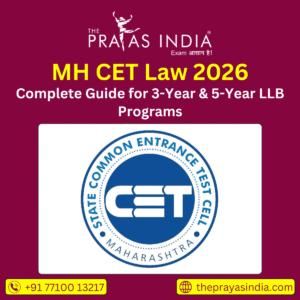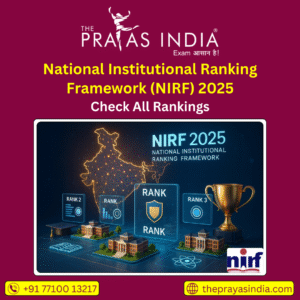Savitribai Phule: Pioneer of Women’s Education and Social Reform in India
- GS-1: Social reformers, Indian society, women’s movements.
- GS-2: Social justice, education policy, welfare schemes.
- Essay: Women empowerment, caste justice, education.
- Ethics: Themes of courage, compassion, equality, public service.
Introduction
Savitribai Phule (1831–1897) stands as one of the most inspirational and impactful reformers in modern Indian history. Recognized as India’s first female teacher and among the earliest champions of women’s rights, her efforts to advance education, challenge social injustices, and empower marginalized communities created a legacy that continues to inspire reform movements and policymaking today.
Her life and work reflect the birth of organized feminism in India, setting the foundation for later advancements in gender equity and social inclusion. For UPSC aspirants, her story ties into themes of Indian society, social reform, and ongoing challenges in justice and education.
Early Life
Savitribai Phule was born on 3 January 1831 in Naigaon, Satara district, Maharashtra, to a family belonging to the Mali (gardener) caste, considered Shudra in the volatile caste hierarchy of the time. At the age of nine, she was married to Jyotirao Phule, who himself would become a legendary reformer and her lifelong collaborator. Initially illiterate, Savitribai faced rigid patriarchal and caste-based restrictions, with societal norms limiting education and public activity for women.
Entry into Education & Training
Savitribai’s journey into education began under the guidance and encouragement of Jyotirao Phule. He taught her to read and write at home, despite fierce societal opposition. Later, she undertook formal teacher training under Sakharam Yeshwant Paranjpe and Keshav Shivram Bhavalkar in Pune and Ahmednagar, becoming the country’s first professionally trained female teacher and headmistress.
Her breaking of social barriers was profound—challenging caste discrimination and deep-seated taboos against female literacy, social mixing, and public speaking.
Establishment of Schools
In 1848, at just 17, Savitribai Phule, Jyotirao, and associate Sagunabai Kshirsagar opened India’s first school for girls at Bhide Wada, Pune—a momentous event in Indian social history.
Fact Box: Schools Established
- By 1851, they ran three schools for girls with around 150 students.
- Over her lifetime, a total of 18 schools for girls and marginalized groups were established by the Phules.
- Introduction of progressive curricula: mathematics, science, history, social studies.
- Started night schools and schools for children of workers and Dalits.
- Developed inclusive, practical, and empowering teaching methods that welcomed students from all castes and communities.
Social Reform Contributions
Women’s Education and Empowerment
Savitribai relentlessly advocated education as the primary means of liberation for women. She addressed untouchability in education, welcomed children of workers, Dalits, and even outcast widows, and pioneered schools, shelters, and vocational training centers for marginalized women and orphaned children.
Abolition of Caste & Untouchability
- Savitribai opened her family’s well for Dalits, directly challenging caste apartheid in daily life.
- She and Jyotiba ensured that schools were accessible irrespective of caste.
Widow Empowerment & Balhatya Pratibandhak Gruh
- Established the “Home for the Prevention of Infanticide” for widows and rape survivors, providing safe shelter and care for pregnant women—a response to widespread social violence and ostracization.
- Developed networks for widow remarriage, inter-caste marriage, and legal protection.
Advocacy Against Child Marriage, Sati & Gender-Based Violence
- Campaigned fiercely against child marriage, Sati, and other practices harmful to women.
- Supported vocational training, self-sufficiency and dignity for survivors.
Literary and Intellectual Contributions
- Published “Kavya Phule” (1854), the first collection of poems in Marathi by a woman, focusing on liberty, equality, and empowerment.
- “Bavan Kashi Subodh Ratnakar” (1892): another influential poetry and essay collection on education, justice, and self-respect.
Activism & Social Courage
Savitribai Phule demonstrated extraordinary courage in the face of fierce caste-based abuse, humiliation, and social bans:
- Regularly pelted with stones and cow-dung for defying social norms.
- Actively participated in Satyashodhak Samaj, a social reform movement and community founded with Jyotiba Phule in 1873 to fight for equality, truth, and rational thought.
- Advocated for inter-caste marriage and discouraged priest-centric rituals for weddings, symbolizing a break from Brahminical orthodoxy.
- Provided famine relief, community support, and public health services in crisis, especially during the 1897 plague outbreak.
Contribution to Literature
Savitribai was a pioneering poet and writer. Her literary output—comprising poems, essays, speeches, and correspondence—reflects deep themes of:
- Female empowerment, the transformative power of education, and uncompromising resistance to caste and gender oppression.
- Literary style: Direct, unsparing, and inspirational.
- Broadened the scope of Marathi poetry and public discourse.
- Published important speeches, letters, and edited lectures on history and social justice, including those of Jyotiba Phule.
Death & Legacy
A symbol of service and compassion, Savitribai Phule died on 10 March 1897 of bubonic plague, contracting the disease while caring for infected patients at a clinic she established with her adopted son. Her passing marked the end of a remarkable reform journey but catalyzed new waves of feminist and social activism.
Her influence is seen today in:
- School and university names, memorials, statues.
- Movements for gender justice, Dalit rights, and educational reforms.
- Inspiration for women leaders, activists, and social reformers nationwide.
Relevance in Contemporary India
Gender Equality & Education
- Government schemes—like Savitribai Phule Kishori Samriddhi Yojana, Beti Bachao Beti Padhao, and women’s scholarship programs—draw inspiration from her vision.
- Continuous push for girl child education, women-led governance, and social inclusion.
Caste Justice and Inclusion
- Ongoing reforms to end manual scavenging, untouchability, and caste-based exclusion are rooted in her pioneering efforts.
- The Indian Constitution’s focus on equality, dignity, and justice echos her lifelong campaign.
Social Welfare Policies
-
Promotion of widow welfare, adult education, shelter homes, and vocational training, especially for marginalized women.
Savitribai Phule & Other Reformers
| Reformer | Focus Area | Major Contribution |
|---|---|---|
| Raja Ram Mohan Roy | Social, women’s rights | Abolition of Sati, modern education |
| Ishwar Chandra Vidyasagar | Women’s education, social reform | Widow Remarriage, girl’s school |
| Jyotiba Phule | Caste, education | Universal education, Satyashodhak Samaj |
| Savitribai Phule | Women’s empowerment, education, caste equity | First female teacher, schools for girls, anti-caste movement |
Key Quotes
- “Awaken, arise, and educate. Smash traditions, liberate minds, and transform society.”
- “Sit idle no more, go, get education. End the misery of the oppressed and forsaken.”
- “A strong, educated woman can build a civilized society, so she should also have the right to education.”
- “Teach a girl, empower a generation. Empower a boy, and you educate an individual.”
- “The lack of learning is nothing but gross bestiality. It is through the acquisition of knowledge that (he/she) loses his lower status and achieves the higher one.”
Timeline of Major Events
| Reformer | Focus Area | Major Contribution |
|---|---|---|
| Raja Ram Mohan Roy | Social, women’s rights | Abolition of Sati, modern education |
| Ishwar Chandra Vidyasagar | Women’s education, social reform | Widow Remarriage, girl’s school |
| Jyotiba Phule | Caste, education | Universal education, Satyashodhak Samaj |
| Savitribai Phule | Women’s empowerment, education, caste equity | First female teacher, schools for girls, anti-caste movement |
Savitribai Phule’s Education Reforms Model

Quick Revision Notes
- Savitribai Phule: India’s first female teacher, social reformer, poet.
- Born: 1831, Naigaon (Maharashtra). Died: 1897, serving plague victims.
- Key reforms: Girls’ schools (1848 onwards), abolition of caste, widow homes, women’s education, anti-child marriage.
- Published works: Kavya Phule (1854), Bavan Kashi Subodh Ratnakar (1892).
- Faced caste and gender abuse; led Satyashodhak Samaj women’s wing.
- Contemporary relevance in gender equity, education schemes, and social inclusion.
Conclusion
Savitribai Phule exemplifies the courage and intellect required to challenge entrenched inequality. Her pioneering efforts as a teacher, reformer, and poet transformed the landscape of Indian education and social justice. As a trailblazer in women’s empowerment, she remains a guiding star for India’s ongoing quest for equality and inclusive development.
FAQs
Q1. Who was Savitribai Phule?
India’s first female teacher, an iconic social reformer who pioneered girls’ education and fought for women’s and Dalit rights in 19th-century India.
Q2. What were her major contributions?
Established girls’ schools, led social reforms in widow welfare, fought child marriage, published influential literary works, and opened access to education for marginalized groups.
Q3. What are her key publications?
Kavya Phule (1854) and Bavan Kashi Subodh Ratnakar (1892), with poetry and social critique.
Q4. Why is she relevant today?
Her life inspires contemporary schemes for gender equity, education, and social justice. Policies like scholarship programs and educational missions reflect her legacy.
Q5. How did Savitribai Phule die?
She died in 1897 while serving victims of the plague—an ultimate act of public service and compassion.









